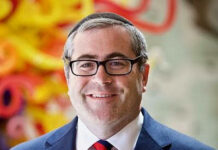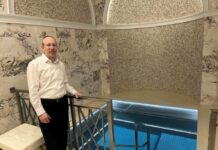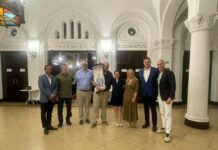“They tried to kill us. Let’s eat.”
If you have not made this joke about Jewish holidays, you are probably not Jewish. It’s basically the story of Purim, Passover and Chanukah. In modern times, it’s also the story of Yom HaShoah and International Holocaust Remembrance Day. (There are no specific feasts associated with these. But nonetheless, they tried to kill us.)
Even our holiest day, Yom Kippur, is far from happy. It’s about not eating or drinking to punish yourself for the sins you committed over the past year. Jews mark the start of every new year by giving themselves a headache.
But there is at least one holiday that’s different: Sukkot. The festival that falls five days after Yom Kippur is just that: a festival. You mark the conclusion of the harvest by eating your meals in a hut outside.
The point is to eat, spend quality time and appreciate. You only end the week with a headache if your friends, family members and fellow congregants are too loud (a strong possibility). Synagogues across the Philadelphia area build sukkahs on their properties to celebrate the holiday. But rituals vary slightly by denomination. We asked a rabbi from the four major denominations and Chabad about how they observe.
Orthodox: Rabbi Binyomin Davis of Aish Chaim in Bala Cynwyd
“We invite a lot of guests on the first night,” Davis said. “It’s a biblical commandment to have a meal with bread in the sukkah.”
Then throughout the week, different groups come in. There’s a kids’ hour one night and a teens’ hour another night. Each group eats, sings and relaxes.
“All we need is a simple hut where we’re in God’s sanctuary and chamber. It’s almost a level that’s higher than the High Holidays,” Davis said.
But you must get through the High Holidays to enjoy Sukkot, according to the rabbi.
“On Rosh Hashanah, we crown God. And then we come towards God on Yom Kippur,” he explained. “We ask that king for a greater level of connection and intimacy. From there, we take that vibe into Sukkot.”
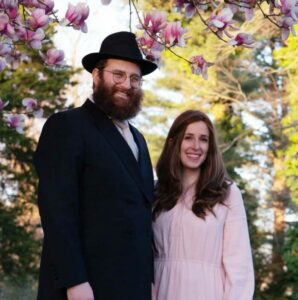
Chabad: Rabbi Hersh Loschak of Rowan University in Glassboro, New Jersey
The Chabad house at Rowan has three sukkahs, according to Loschak. One is at the rabbi’s home, another is outside the student center and a third is at the Rowan School of Osteopathic Medicine in Sewell.
At the house, the rabbi and his rebbetzin, Fraidy Loschak, host Shabbat dinner, kosher pizza night and a Saturday evening feast. On campus, students can take their lunches in the sukkah and scan a QR code on their phones to learn more about the holiday. And one night during the week, the Loschaks will host a dinner at the medical school.
“We’ll shake the lulav with people and invite them in,” the rabbi said.
“We just prayed that God should give us a good year, so it’s the best time to say it’s going to be good,” he added.
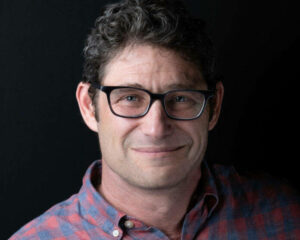
Conservative: Rabbi Shai Cherry of Congregation Adath Jeshurun in Elkins Park
Cherry and his congregation are using the sukkah gatherings to host events, too. The synagogue’s environmental committee is sponsoring a Sunday night dinner. A group of Israeli Americans will talk about the situation in Israel on another evening.
“Each night, we’ve got a different constituent group sponsoring the dinner,” Cherry said.
“Learning is the most important mitzvah, and it doesn’t stop during the holidays,” he added.
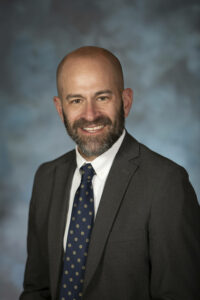
Reform: Rabbi Benjamin David of Reform Congregation Keneseth Israel in Elkins Park
KI members will gather in the sukkah for Shabbat dinner, a Shabbat morning service and a Tot Shabbat. Its preschool students will have classes there every day.
“It becomes a communal space used by every part of our congregational family,” David said. “The sukkah is meant to be accessible to all. It’s open. It’s welcoming.”
No outside issues should come in, according to David.
“We leave our politics. We leave our ideologies. We leave all of it outside,” he said. “It helps us get to a place we don’t get to otherwise.”
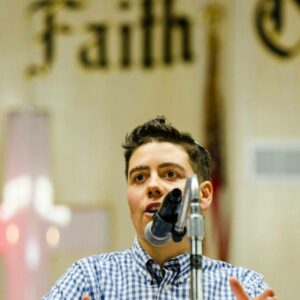
Reconstructionist: Rabbi Ari Lev Fornari of Kol Tzedek in Philadelphia
Kol Tzedek will hold Friday night and Saturday morning services in the sukkah. But during the rest of the week, it will welcome different groups for their own gatherings. There will be one for the LGBTQ community, Jews of color and the deaf and disabled, according to Fornari.
“We want to use the bigness of the holiday to gather in smaller communities and help people form relationships,” he said.
But a Yiddish dancing night will be open to all.
“It’s a holiday about joy and building community,” Fornari said.



